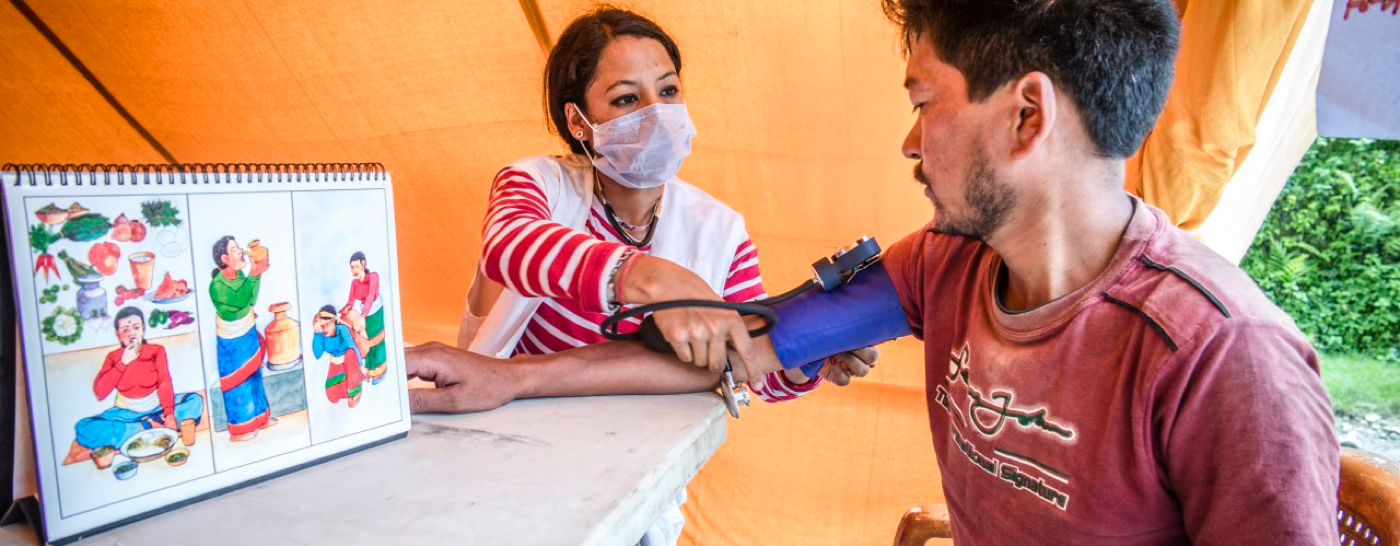The situation
Nepal is a country in southern Asia, bordering both India and China. In April 2015, it was hit by a devastating magnitude 7.8 earthquake which impacted millions of people. The district of Sindhupalchok, north-east of Kathmandu, was one of the worst affected areas and faced extensive damage – its health services, already basic, were decimated.
After the earthquake, the Nepalese government aimed to get all of Nepal’s damaged health posts rebuilt and earthquake-proof by 2020, but only committed funding for about 30 per cent of permanent reconstruction. Many health posts and hospitals operated in tents or temporary buildings, and still are – and the pace of reconstruction was slow. Lack of safe, warm shelter and sanitation increased the likelihood of waterborne diseases such as cholera, pregnant women and young children being especially at risk.
Our Work
Doctors of the World has been working in Sindhupalchok since 2007. Before the earthquake we focused on supporting local women’s cooperatives and improving access to sexual and reproductive health (SRH) services, which are still vital parts of the project. We train village leaders in how to help women access quality SRH and maternity care, and we also train community workers to identify women who might have experienced gender-based violence.
During the emergency response to the earthquake, we realised we needed to help communities prepare better for disasters. As a result, we have started to train communities in emergency first aid, and we are setting up systems with the local authority to make sure medical supplies are always available.
At the end of our emergency response, we recognised that long-term action was required in the villages of Sindhupalchok, where most of the men had left to find work, leaving women to keep the communities going. Working in ten villages, we aimed to build on pre-existing local structures, by helping to revitalise cooperatives and health facilities. We supported health workers in rebuilding their offices and health centres, putting in place emergency plans and medical stock, and restoring water supply systems – all whilst helping to develop their skills and knowledge, building local capacity to withstand natural disasters.
Four years on, as the project came to a conclusion, we can see a new and exciting dynamic growing in the cooperatives – one that highlights their strong commitment to healthcare access.
